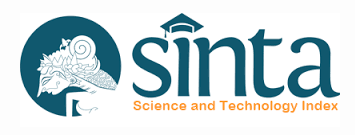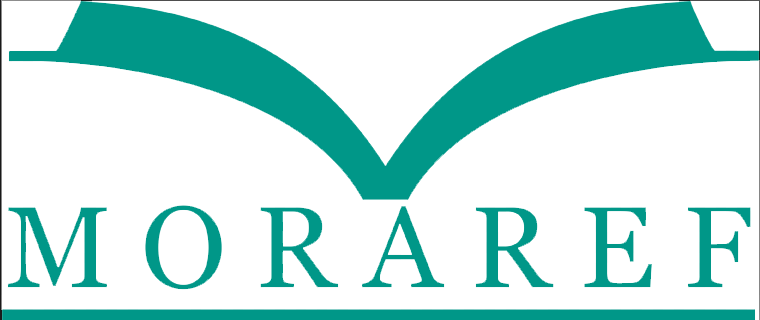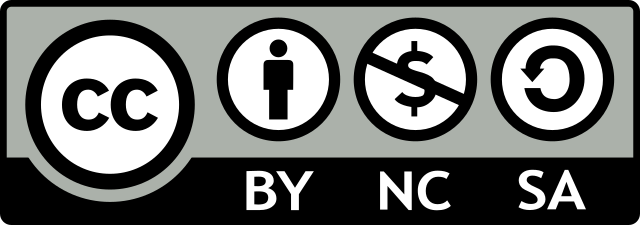Inklusi Sosial pada Bank Sampah Perpustakaan Rosella Genematrik dalam Menciptakan Ekonomi Baru pada Masyarakat Kelurahan Siantan Tengah Kecamatan Pontianak Utara
Abstract
The purpose of this study is to the strategy of the Rosella Genematrik Library waste bank in creating a new economy in Siantan Tengah Village, North Pontianak, which is a social inclusion program that helps process waste sustainably with community participation. The library as a center for information sources has various functions in education, research, and recreation. Collaboration between waste banks and libraries can create an ecosystem that supports the growth of entrepreneurship in the fields of waste management and recycling. The research method used is qualitative with documentary study techniques and interviews. The researcher conducted research at the Rosella Genematrik Library waste bank in Siantan Tengah Village, North Pontianak District, West Kalimantan. This study discusses the strategy of waste banks as a social inclusion program to create a new economy in the community. Some of the proposed strategies include promotion on social media, development of community resources, providing facilities and services, campaigns to increase environmental awareness, incentive programs, sources of information, entrepreneurship training, environmental literacy, and development of environmentalist communities. In conclusion, waste banks can use this strategy to support a new economy that is more sustainable and a cleaner environment
Downloads
References
Anis Indah Kurnia dan Romansyah, D. (2015). Rancangan Sistem Siklus Akuntansi Pada Bank Sampah. Akuntansi Dan Keuangan Islam, 3.
Basuki, S. (1993). Pengantar Ilmu Perpustakaan. PT Gramedia Pustka Utama.
Habibi, M. (2020). Analisis Perana Bank Sampah Dalam Meningkatkan Pendapatan Pengrajin Barang Bekas Daur Ulang Dikelurahan Rejosari Kecamatan Bukit Raya Kota baru.
Hardiatmi. (2011). The supporting factors of city waste management. INNOFARM: Jurnal Inovasi Pertanian, 10. https://doi.org/https://doi.org/10.33061/innofarm.v10i1.630
Hartinah, Sri. (2017). Materi Pokok Metode Penelitian Perpustakaan (1st ed.). Univeristas Terbuka.
Ibrahim, B. (2005). Pengelolaan Perpustakaan Sekolah. J. Bumi Aksara.
Muzdalifah, I. (2019). Pengelolaan Bank Sampah untuk Kesejahteraan Masyarakat Rajekwesi Kecamatan Mayong Kabupaten Jepara (studi Kasus Pada Bank Sampah Tunas Bintang pagi). UIN Walisongo Semarang.
Ningsih F, R. (2007). Pengelolaan Perpustakan. Garaha Ilmu.
PS, T. P. (2008). Penanganan dan Pengolahan Sampah (1st ed.). Penebar Swadaya.
Putri, A. Amanda. (2024). wawancara.
Rachmawati. (2018). Model Promosi Bank Sampah Berbasis Perpustakaan Kelurahan". UMP PekalonganUMP Pekalongan.
Rahayu, R. (2020). Pengelolaan Sampah Berkelanjutan: Menuju Ekonomi Sirkular. Urnal Teknik Industri Universitas Trisakti, 18(2), 235–242.
SIPSN. (2023). Sistem Informasi Pengelolaan Sampah Nasional tahun 2023. https://sipsn.menlhk.go.id/sipsn/#.
Sutrisna Djatmiko, E. (2018). Pengelolaan Sampah: Menuju Masyarakat Sehat dan Lingkungan Bersih. Pustaka LP3 Universitas Gadjah Mada.
Sulviawati. (2024). Kepala Perpustakaan Rosella Genematrik.
Subarna, U. (2014). Manfaat Pengelolaan Sampah Terpadu. CV. Aryhaeko Sinergi PersadaCV. Aryhaeko Sinergi Persada.
Sumarto, H. (2015). Peran Perpustakaan Sekolah dalam Pengelolaan Sampah di Sekolah". UNDIP.
Suwarno, W. (2010). Pengetahuan Dasar tentang Perpustakaan Sisi Penting Perpustakaan dan Pustakawan. Ghalia Indonesia.
Tesis.com, I. (2019). Pembahasan Lengkap Teori Bank Sampah menurut Para Ahli dan Contoh Tesis Bank Sampah. https://idtesis.com/pembahasan-lengkap-teori-bank-sampah-menurut-para-ahli-dan-contoh-tesis-bank-sampah/
Yuniastuti. (2016). Strategi Pengembangan Bank Sampah Berbasis Masyarakat di Perpustakaan Desa". UNPAD.
Zhou, Q.-Y., Park, J., & Koltun, V. (2018). Open3D: A Modern Library for 3D Data Processing. https://doi.org/https://doi.org/10.48550/arXiv.1801.09847
Copyright (c) 2024 kurniawan kurniawan

This work is licensed under a Creative Commons Attribution-NonCommercial-ShareAlike 4.0 International License.
By submitting your manuscript to our journal, you are following Copyright and License








